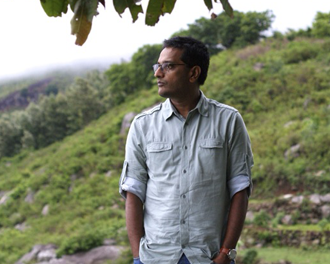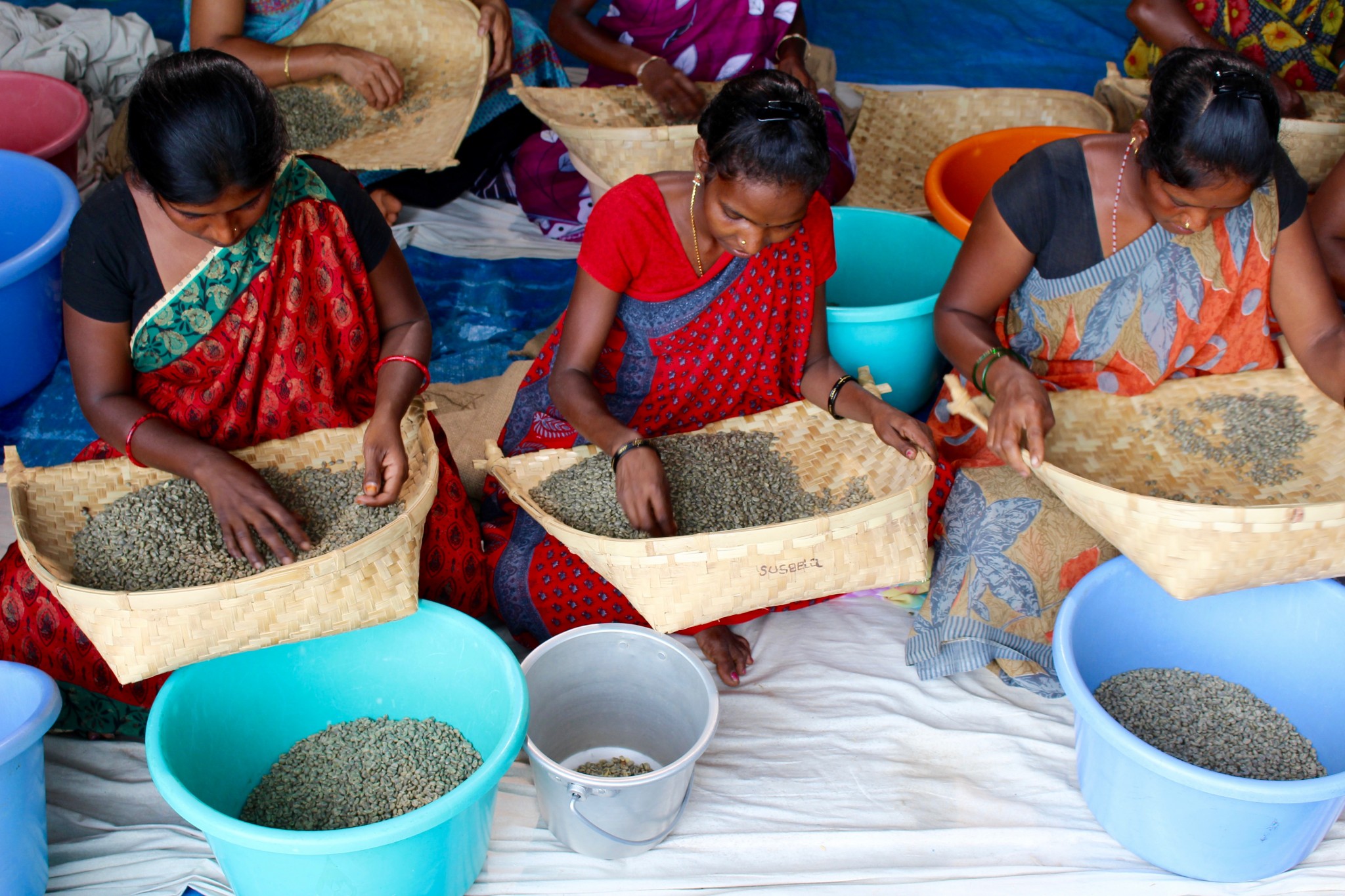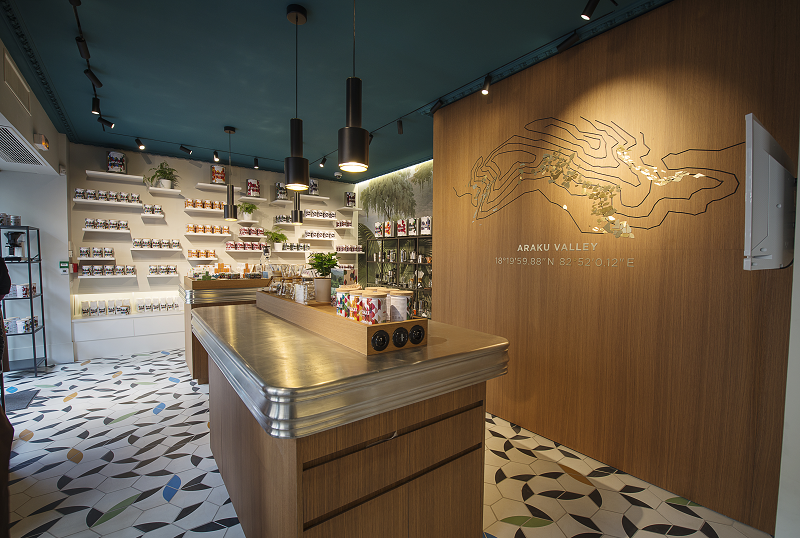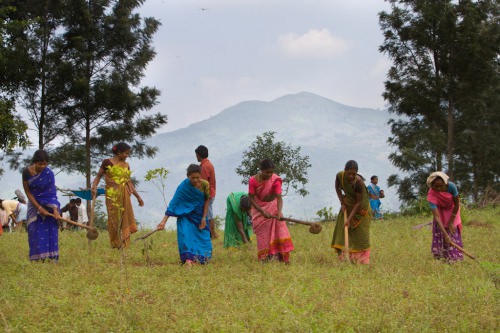The Araku Coffee is now available internationally, with a first store in Paris. It is a premium-quality coffee produced by Indian tribes which were living on the fringes of society some years ago. This incredible achievement has been possible thanks to the tremendous work done by the Naandi Foundation, one of the largest social sector organizations in India. Founded in 1998, Naandi was born out of the idea of creating a professionally run organization managed by eminent business leaders. It implements solutions tackling education of girls, safe drinking water and sanitation, sustainable agriculture, skilling and employment for youth, safe motherhood and early childhood development. With a team of 300 full time professionals and over 3000 front line development workers, Naandi’s approach is to listen intently to communities it serves and make them equal partners in solving their problems.
Manoj Kumar, CEO of the Naandi foundation, unveils some of the actions implemented by his organization to help marginalized tribes produce a world-class coffee while increasing their food security. An inspiring journey worth sharing.
«
A surprising request
In 2004, after Naandi had implemented actions to address maternal mortality and initiated crèches for small children, primary schools… the Adivasis began to trust our team. Their forests were disappearing and they wanted to explore new farm-based livelihood. It was fascinating because none of them were even farmers. The only thing they did was small shifting cultivation of paddy. We asked the villagers what was the most exotic crop they wanted to cultivate and they said coffee. This was a surprise. They told us that since 1900 onwards, British were growing coffee in the region and they were forbidden to enter the coffee farms. When the Government took over the British coffee estates, they were again cast away. The Adivasis felt there was something unique to do with a crop they had always been kept away from.
Soon, we realized there were three main challenges we would have to overcome to implement a successful coffee production. First, we had to get them used to the culture of agriculture, as a small farmer’s life is full of hard labor in the field, rather than food gathering and hunting. Second, we had to make them see the importance of soil and of everyday discipline for every single plant. And we had to focus on patience as coffee doesn’t grow in 3 months but 4 years. Finally, we had to make them understand that the eventual success of the journey would depend on how much detailed attention they would pay to the instructions of coffee experts for bio-dynamic agriculture.
The magic happens
We started working with 1,000 families from different villages. We planted coffee trees and 1 million silver oak trees. We managed the farmers as a club, building on their values of sharing. The magic happened! Other farmers wanted to join. And soon, one thousand families became two thousand, three thousand and so on. We realized we needed a processing unit because coffee must be plucked and processed within 12 hours. Also, as this is a very complicated terrain, farmers sometimes had to transport their coffee on foot for 4 hours to reach the nearest road. As these challenges arose, we understood we needed to increase scale to reduce costs. This is when we partnered with the Livelihoods Funds. Together, we planted 3 million fruit trees and 3 million coffee trees to enable Adivasis reclaim their forest. We started training farmers on bio-dynamic agriculture so they could produce quality coffee and at the same time take care of their soil.
When we started this project, we never knew the coffee would even last because the Adivasis were famous for not being patient. But by the second and third year, I said to myself: “Oh my god! They are taking it very seriously. We need expertise and a processing unit.” I must confess it is was the foolish & blind faith in just wanting to do something that led Naandi into this coffee project. There was no planning. Only some madness of passion.
The red trucks & the gems of Araku
As the project grew, we quickly realized that to become sustainable, we needed to produce high quality coffee as our costs were higher than the average market price. As from 2011, we invited coffee experts every year to the “Gems of Araku” contest to rate our coffee. People from all around the world came and shared knowledge and tips with the farmers. Soon, coffee experts started saying Araku held real gems. The profile of the coffee, the soil conditions, and the complete dedication of the people looking after for the plants and cherries give it a unique character. They told us we held a potential world-class coffee but still needed to improve the quality. This is what we did.
We implemented a color-code to enhance coffee quality. For farmers producing the best quality coffee, we sent a red truck to collect it. Otherwise we sent a yellow or green truck. If the red color truck came to your farm, you got 4 times the market price. People started rushing to farms who had got the red truck. This is how we created the “behavioral economics” for making farmers go up the ladder of quality. We also created a tailor-made training model based on the Adivasis’ community bonds of sharing. 3,000 best farmers were selected to convert their farms into farm-fields.
It needed tremendous dedication and a lot of perseverance and patience. Each farm, each tree is monitored. All cherries have to be plucked out of the same redness and size. Even a slight change in the redness could lower the quality. We use to joke that someone should write a book entitled “50 shades of red in the Araku Valley” because we are into that precision for our coffee.
As we applied the bio-dynamics principles properly, experts rated our coffee top quality. It was a science rather than just a mumbo-jumbo. We started getting fairly high prices for this coffee. But we realized that with 14,000 farmers, all regional buyers put together could hardly buy 5% of what we were producing. The only way out was to find a global market where buyers would agree to pay a premium price for a top-quality coffee with a social story.
Paris, trees and pride
With the support of Indian companies and of our partners in France, we set off for a new chapter of the Araku Coffee journey with a shop in the center of Paris. We thought there would be no better place to start sharing this story than in this city of coffee-lovers. When we had to choose a retail brand for the coffee, we decided to call it “Araku” and nothing else to give the full story. And we wanted the setting of the shop, with a huge representation of the valley with all the distinctive coffee terroirs, to illustrate how this quality coffee is helping Adivasis create a legacy for their tribes, when villages are falling off the map. The shop creates a direct link between customers and farmers in the Valley of Araku.
In the field, people are more and more excited by the idea of getting more forest. Ever since the Livelihoods Funds boosted the project, we have reached 13 million trees with the support of other local companies. Now the farmers want to plant even more trees, 2-3 million every year. This is something we would never have heard from them before.
We will also produce around 12 000 tons of mangoes each year. That makes us not only the largest bio-dynamic and organic coffee cooperative but also probably the largest bio-dynamic mango producer in the world. We do not ask farmers to stop growing their millets and devote all their time for coffee. We ensure that agriculture first takes care of nutritional security. You should see the extraordinary happiness the tribes now have. They all said they would sell mangoes only after having eaten them all the year. This is more than food security, it is a matter of pride. Coffee, mango and tree plantation offer Adivasis an elevated status which a conventional job may never have offered them.
Interview by Nishal Ramdoo/ Livelihoods Venture.
Photos: Clément Sautet/ Agence Puppets/ Stella Salmon.
Read also:
From marginalization to premium coffee marketing:
the inspiring story of Araku people in India
By Bernard Giraud, President & Co-founder of Livelihoods Venture.






